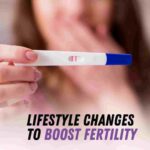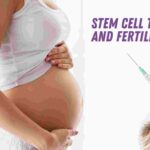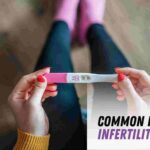As women age, fertility naturally declines due to a decrease in the quantity and quality of eggs. Understanding the relationship between age and fertility is crucial for family planning and managing expectations around conception.
The Biological Clock: How Age Affects Fertility
The concept of the biological clock is well-known, but its implications for fertility are often misunderstood. Here’s what you need to know:
- Peak Fertility Age: Women are most fertile in their 20s. During this period, the chances of conceiving are highest, and the risk of pregnancy complications is relatively low.
- Decline Begins at 30: Fertility starts to decline around age 30, with a more significant drop after 35. The number and quality of a woman’s eggs decrease, making conception more challenging.
- Over 40: By age 40, fertility significantly declines. The chances of natural conception drop, and the risk of miscarriage and chromosomal abnormalities increases.
Fertility Preservation Options
For those who wish to delay pregnancy, there are several fertility preservation options available:
- Egg Freezing: Egg freezing allows women to store their eggs at a younger age, preserving their fertility for future use. This can be particularly beneficial for those who need to delay pregnancy due to career, education, or personal reasons.
- Embryo Freezing: For couples, freezing embryos might be a preferred option. This involves fertilizing eggs with sperm before freezing, which can later be used in IVF treatments.
Assisted Reproductive Technologies (ART)
For women over 35, assisted reproductive technologies (ART) can increase the chances of conception. These include:
- In Vitro Fertilization (IVF): IVF involves fertilizing an egg outside the body and then implanting it into the uterus. It’s often recommended for older women or those with fertility issues.
- Donor Eggs: For women who cannot conceive with their own eggs, donor eggs from younger women can be used. This significantly increases the chances of a successful pregnancy.
Lifestyle Factors and Fertility
While age is a significant factor, lifestyle choices also impact fertility. Maintaining a healthy lifestyle can help improve fertility and overall reproductive health:
- Healthy Diet: Eating a balanced diet rich in fruits, vegetables, whole grains, and lean proteins supports reproductive health.
- Regular Exercise: Moderate exercise helps maintain a healthy weight and reduces stress, both of which are important for fertility.
- Avoiding Smoking and Excessive Alcohol: These habits can negatively affect fertility and should be avoided when trying to conceive.
When to Seek Help
If you’re over 35 and have been trying to conceive for six months without success, it’s recommended to seek advice from a fertility specialist. Early intervention can improve the chances of successful treatment.
Call to Action
At Indigo Women’s Center, we understand the complexities of fertility and the impact of age on reproductive health. Our team of specialists is here to guide you through every step of your fertility journey. Contact us today to schedule a consultation and take the first step toward achieving your dream of parenthood.
📞 Call us at +91 72991 09555
📧 Email us at indigowomenscenter@gmail.com





